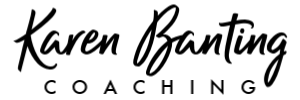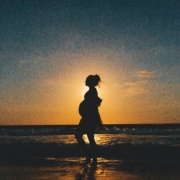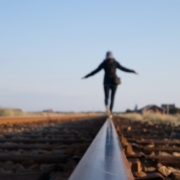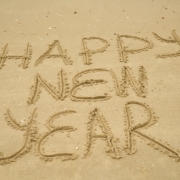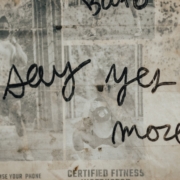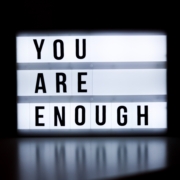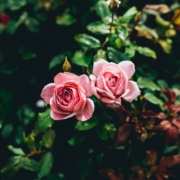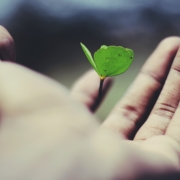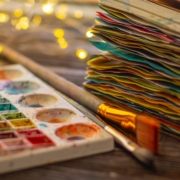Fear vs. Faith
I’m gearing up to have a baby (T minus 4 days), and I truly can’t think of an experience that intimidates me more than giving birth. It’s an extremely daunting thing to be sitting around waiting for, which is essentially what I’m doing right now. It’s such a big unknown, beyond anything I’ve ever experienced, and I know that there’s no way to truly prepare for something of this magnitude.
Sure I can stretch my hips, and have been doing that for the past week (yes, I should have started months ago), and can practice breathing and reciting some helpful mantras to myself, and yes I’ve been doing my pelvic floor PT in preparation, but let’s be real, I am walking into the biggest physical challenge of my life, and I simply have no idea how it’s going to go.
“Maybe you can make a little bit of space for thinking about it being a positive experience”, my therapist said to me last week, and I couldn’t help but smile at the irony. How often do I encourage my clients to do the very same thing, to shift their perspective, to make room for some positivity and faith, instead of only listening to and trusting the voice of fear?
Fear is just such an easy place for the human mind to go. We’re hardwired for it. Our brains are essentially highly evolved threat-seeking devices, designed to keep us alive, even if the cost of that is chronic hypervigilance and a persistent focus on the negative.
There’s an ego element to it too, I think. We don’t want to be blindsided, right? That’s such a pervasive idea, that by hoping for the best or even letting ourselves think positively, we’re setting ourselves up not only for disappointment, but for the shame that comes from being caught off guard. “I should have known better, I should have known not to get my hopes up”, that kind of thing.
It’s the belief that if we allow ourselves to get excited about the job interview, tell ourselves that we’re the best for the role and we 100% have this, it will be that much more painful if we don’t get it. And that makes sense. But how powerful is it to go into that interview believing that you’re going to knock it out of the park? How much might that actually influence the outcome?
There’s a reason professional athletes spend countless hours visualizing themselves making the successful shot. What our brains believe to be true about us influences our actions, which then influence outcomes. We show up differently, we’re more confident, we don’t spiral out over a small slipup, but instead recover and go on to make that winning goal.
I don’t need to go on a whole tirade here about the power of positive thinking, but I did listen to a fascinating podcast on pain recently, that’s been helpful as I consider labour. The guest, Dr. Rachel Zoffness, a pain psychologist, Assistant Clinical Professor at the UCSF School of Medicine, and the Co-President of the American Association of Pain Psychology, spoke about pain as a biopsychosocial phenomenon. And well that’s a whole mouthful to get out, what it means is that the experience of pain, which actually exists in the brain, is always influenced by biological, psychological, and social factors.
Biological factors are things like genetics, tissue damage, acute injury, diet, sleep, etc. Psychological factors include our thoughts and feelings and beliefs, states like depression and anxiety, our trauma history, and especially beliefs we have about the pain. Social factors include things like how supported or isolated we feel, socioeconomic status, and access to care. All of these factors work together to influence how much physical pain we actually experience. It’s kind of mind-blowing to consider. As she puts it, feeling supported can help turn the pain dial down, literally translating to the experience of less physical pain, just as feeling isolated or believing that we’re doomed or powerless can turn the pain dial up. It’s fascinating to think about pain in this way, and it actually gives me a little bit of hope about what I’m heading into.
To be honest, I’ve had glimpses of self-belief, moments where I’ve thought I can actually do this thing. I really do trust my body, so maybe I’ll be able to trust the process and not create more pain with my mind. And I have a Doula, and a super supportive partner, so maybe their presence and my sense of being cared for will help turn that pain dial down for me just a little.
They’ve been fleeting, but I’ve had these thoughts. And then I feel good for a few seconds, hopeful, even, that maybe it’s not going to be so bad. Then fear comes along and scolds me for being naive. Who do I think I am to imagine labour won’t be all that bad? How naive could I be that I’ve barely done anything to prepare for this and I’m somehow expecting it not to be awful? Fear tells me that it’s wiser, more realistic, more sensible, to brace myself against the worst rather than daring to hope for the best.
Out for a walk on Wednesday morning, I ran into someone who literally used the word “fun” to describe her labour experience. She said, word for word, “the whole experience was way more fun than I expected. The doctors and nurses were amazing. You’re going to be great! You’ve got this.”
I can’t tell you how much I needed to hear that. And while the concept of labour being “fun” is beyond my imagination, it sure was nice to hear an alternate perspective on the experience. I’ve heard enough horror stories in the last few months. It’s refreshing to have a little balance in the narrative.
It always comes back to balance, doesn’t it?
Going into this experience expecting it to be a walk in the park is unrealistic and could set me up for a seriously rude awakening. And going into it expecting only the worst is not only an unpleasant and unhelpful way to spend the next few days, but it could literally make the experience worse, becoming a self-fulfilling prophecy.
Perhaps the most balanced perspective of all is that I am entering into a grand unknown, and I will have no choice but to surrender to the experience, however it unfolds.
Wish me luck, and I’ll see you on the other side.
K
